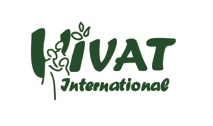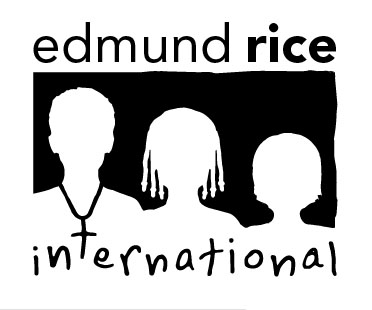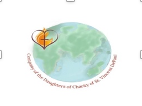Universal Periodic Review
Joint Submission for Review of Nigeria
4th Cycle Jan-Feb 2024
Submitted by:

VIVAT International is a Non-Governmental Organization with a membership of more than 25,000 from 11 Catholic Religious Congregations, working in 120 countries to promote human rights through advocacy at international and local levels. VIVAT International addresses human rights issues with particular focus on the rights of children, women, and eradication of poverty, sustainable development and the culture of peace. It has Special Consultative Status with the Economic and Social Council of the United Nations (ECOSOC) and is associated with the United Nations Department of Global Communications (DGC).

Edmund Rice International is an international non-governmental organization, founded in 2005 with Special Consultative Status with ECOSOC since 2012. ERI is supported by two Catholic Religious Congregations, the Christian Brothers, and the Presentation Brothers. It works with network of like-minded organizations and in the countries where the two Congregations are present. ERI has a special interest in the rights of the child, the right to education and in eco-justice.

The Company of the Daughters of Charity of Charity of St. Vincent de Paul was founded in 1633 by St. Vincent de Paul and St. Louise de Marillac. Recent survey of 2021 confirms that there are nearly 13 thousand Sister living and working in 97 countries and five continents of the world. They engage in ministries with people who live in poverty and accompany them to work for their own transformation through education, social, health and pastoral ministries. Through these ministries, they advocate for justice and human rights and bring the voices of those who are poor to the global conversation through their representation at the United Nations in Geneva and New York. They see the Sustainable Development Goals as part of the core Vincentian values and use it as a means to build international cooperation and solidarity among the Sisters in their mission with those who are poor.

Dominicans for Justice and Peace (Order of Preacher), represents the Dominican Order at the United Nations (UN). It is a non- profit NGO, with the UN ESOCOC Status since 2002. It is dedicated to the promotion of justice and peace in the world and to the promotion and protection of human rights for all, which is an integral element of the Dominican Order’s mission to preach the truth.
Introduction
This submission was prepared by the above organisations in consultation with members of their respective networks in Nigeria.
I Respect for Life and Security of Persons
1. We are concerned about credible reports of: unlawful and arbitrary killings; forced disappearances; torture, forced secret abortions and cases of cruel, inhuman, or degrading treatment or punishment by the government.[1]
2. The insurgency in the North East region by the militant terrorist groups Boko Haram and ISIS-WA continues. The groups conducted numerous attacks on government and civilian targets, resulting as of year’s end in thousands of deaths and injuries, widespread destruction of property, internal displacement of more than two million persons, and external displacement of an estimated 332,000 refugees.[2]
3. We are also concerned about the failure of police and security services to respect the rights of people in regard to arrest and detention, e.g., by failing to obtain arrest warrants and access to legal advice, failure to allow family access and by carrying out arbitrary arrests.[3]
4. Local NGOs and international human rights groups have also reported acts of torture and inhuman treatment of criminal suspects, militants, detainees, and prisoners by the security services. Impunity, exacerbated by corruption and a weak judiciary, remained a significant problem in the security forces, especially in police, military, and the Department of State Services.[4]
5. Prison and detention centre conditions remain harsh and life threatening. Prisoners and detainees are subjected to gross overcrowding, inadequate medical care, food and water shortages, and other abuses.[5]
We recommend that the government of Nigeria
6. Re-visit the recommendations from the Office of the United Nations High Commissioner for Human Rights (OHCHR) of August 2018 which suggest that Nigeria adopt or review counter-terrorism laws and policies to ensure compliance with international standards including international human rights law and international humanitarian law[6] and take note of the principles of legality and proportionality[7]
7. Conduct urgent, thorough and independent investigations into all allegations of all violations of international human rights law and international humanitarian Law and ensure accountability, regardless of the position or rank of the perpetrators.
II Status and Treatment of Internally Displaced and Stateless Persons
8. As at the end of 2022, the UN Refugee Agency reported there were approximately 2.2 million persons displaced in the North East region. There were approximately 475,000 displaced persons in the North West region and approximately 500,000 in the North Central region. Insurgency was the reason for the vast majority of displacements, followed by communal clashes.[8]
9. The government does not always promote the safe, voluntary, and dignified return, resettlement, or integration of IDPs and at times has restricted humanitarian NGOs’ or international organizations’ access to IDPs.
10. The government does not require birth registration, and the majority of births are unregistered. The 2018 Nigeria Demographic and Health Survey, the most recent source of data available, found only 42 percent of births of children younger than five were registered.[9]
We recommend that the government of Nigeria
11. Takes immediate steps to strengthen and expand measures to protect civilians, including in the context of counter-insurgency operations, and to adopt a comprehensive strategy for combating violent extremism[10]
12. Fulfils its obligations under international humanitarian, human rights and refugee law and ensure the protection of civilians during armed conflicts[11]
13. Implements the recommendations accepted in its 3rd cycle review regarding the status and treatment of internally displaced and stateless persons[12].
14. Take steps to achieve SDG target 16.9, to provide legal identity for all, including birth registration, by 2030.
III Corruption and Lack of Transparency in Government
15. Although the law provides criminal penalties for corruption by officials, the government does not consistently implement the law. There are numerous reports of government corruption.
16. Massive and widespread corruption affects all levels of government, including the judiciary and security services. The bulk of anticorruption efforts by the Independent Corrupt Practices Commission and the Economic and Financial Crimes Commission remain focused on low- and mid-level government officials, although both organizations brought indictments against various active and former high-level government officials. Many of the corruption cases, particularly the high-profile ones, remain pending before the courts due to administrative or procedural delays.[13]
We recommend that the government of Nigeria
17. Revisits recommendation 135.9 of the General Assembly 2018 that noted instruments introduced to check corruption, together with the recommendations accepted in its 3rd cycle review, and ensure their effective enforcement [14].
IV Discrimination and Societal Abuses of Women
18. Police often refuse to intervene in domestic violence cases or blame the victim for provoking the abuse. In rural areas, courts and police are reluctant to intervene to protect women who formally accuse their husbands of abuse if the level of alleged abuse does not exceed local customary norms.
19. Federal law criminalizes Female Genital Mutilation/Cutting. The law penalizes persons performing female circumcision or genital mutilation or anyone aiding or abetting such a person. However, enforcement of the law is rare.[15]
20. Although the constitution provides the same legal status and rights for women as for men, in some cultural settings women remain marginalised. For example, in some cultural settings customary practices do not recognize a woman’s right to inherit property.[16]
We recommend that the government of Nigeria
21. Create a conducive environment for civil society organizations to engage in grassroot education programmes to support women in difficult and abusive circumstances through advocacy campaigns and civil rights education.
22. Continue to raise awareness among religious and traditional leaders and the general public about the criminal nature of female genital mutilation/cutting and its adverse effects on the human rights of women where such practices persist.
V Rights of Children
23. The law requires provision of tuition-free, compulsory, and universal basic education for every child of primary and junior secondary school age. Despite these provisions, extensive discrimination and impediments to women’s and girls’ participation in education persists, particularly in the north.[17]
24. There are laws against child abuse; however, these laws require ratification by each state, and not all states have ratified them. Child abuse remains common throughout the country, but the government has taken no significant measures to combat it.[18]
25. In some states, children accused of witchcraft are killed or suffer abuse such as kidnapping and torture.[19]
26. Federal law sets a minimum age of 18 for marriage for both boys and girls. While 32 states have adopted the law, many states, especially northern states, do not uphold the federal minimum age. The government has not taken significant legal steps to end the sale of young girls into marriage.
27. In keeping with its acceptance of the 3rd cycle UPR recommendations on trafficking in persons, Nigeria has shown positive commitment towards addressing the concerns raised by approving 3 major policy documents: National Action Plan on Human Trafficking in Nigeria (2022-2026); National Policy on Protection and Assistance to Trafficked Persons in Nigeria and, Protocol for Identification, Safe Return and Rehabilitation of Trafficked Persons. As a result of these policies, The National Agency for the Prohibition of Trafficking in Persons (NAPTIP) has gone a step further in collaborating with The National Judicial Institute to organise a technical retreat for Judges and Prosecutors on The Prosecution of Sexual and Gender Base Violence Cases. It has also partnered with Meta to tackle the crisis of missing children with the launch of Amber Alert in Nigeria. The government agency is heavily supported by religious groups notably the Nigerian Conference of Women Religious. This collaborative effort led to the unprecedent tip off, arrest, trial and conviction of 500 persons on human trafficking related offences. These included five of its officers according to official reports released on June 5, 2023. [20]
We recommend that the government of Nigeria
28. Increase efforts to prevent the sale of children for slavery and stop the exploitation of the girl child as subjects of sexual violence particularly as perpetrated by insurgents.[21]
29. Ensure an end to the recruitment and use of children by task forces [22]
30. Intensify collaboration between the federal ministry of women affairs, civil society organisation and faith-based NGOs to ensure the child’s right to protection in all the states and to prevent accusations and intimidation of all children regarding witchcraft.
31. Create a safe environment to facilitate and support the mission of the National Conference of Women Religious (NCWR) in the implementation of their projects against the trafficking and exploitation of women.
VI Disability
32. Persons with disabilities often face restrictions to equal access. While the law prohibits discrimination based on disability and provides persons with disabilities the right to equal access to education, health services, public buildings, and transportation, persons with disabilities often do not have such access. This law has not been implemented effectively.[23]
We recommend that the government of Nigeria
33. Effectively implement the National Disability Bill to ensure a friendly and inclusive environment for people living with disabilities in all the states of Nigeria.
VI Rights of Workers
34. The law provides for a national minimum wage for public and private sector employers with 25 or more full-time employees, with exceptions for seasonal agricultural workers and some others. The minimum wage is below the poverty income level.[24]
35. Government enforcement of the minimum wage, particularly by state governments, remains sporadic. The ILO has urged the government to establish an effective system of supervision and sanctions to apply the national minimum wage at all levels.
36. Authorities have failed to enforce wage, hour, and Occupational Safety and Health (OSH) laws and inspections in the informal sector or with part-time workers.[25]
We recommend that the government of Nigeria
37. Investigate the withholding of workers’ salaries and the diversion of public funds by designated authorities for their personal purposes in some states, thereby pushing the common people into extreme poverty.
38. Implements the recommendations accepted in its 3rd cycle review regarding the rights of workers [26]
[1] https://www.amnesty.org/en/location/africa/west-and-central-africa/nigeria/report-nigeria/
[2] https://www.unicef.org/media/135336/file/Nigeria-Humanitarian-SitRep-31-December-2022.pdf
[3] https://www.amnesty.org/en/location/africa/west-and-central-africa/nigeria/report-nigeria/
[4]https://www.researchgate.net/publication/361100779_Police_Brutality_and_Violation_of_Human_Rights_in_Nigeria_-_Causes_and_Implications
[5] https://www.tandfonline.com/doi/full/10.1080/23311886.2021.1956035
[7] Ibid, paras79 & 81 (b).
[8] https://reporting.unhcr.org/operational/operations/nigeria
[9] https://dhsprogram.com/pubs/pdf/FR359/FR359.pdf
[10] See A/HRC/30/67,paras, 22,55,64 and 81 (a) and (d)
[11] See S 2017/304, para. 91.
[12] See recommendations 148.286, 148.288,148.289
[13] https://www.unodc.org/documents/nigeria/Corruption_Survey_2019.pdf
[14] See A/HRC/WG/31/NGA/1. See also UPR recommendations 148.83 and 148.84
[15] https://www.unicef.org/nigeria/press-releases/unicef-warns-fgm-rise-among-young-nigerian-girls
[16] https://nji.gov.ng/wp-content/uploads/2021/12/WOMEN-AND-PROPERTY-RIGHTS-UNDER-CUSTOMARY-LAW-IN-NIGERIA-BY-HON.-JUSTICE-JIBRIL-IDRISU-JP-RTD-converted.pdf
[17] https://malala.org/countries/nigeria
[18] https://www.unicef.org/nigeria/child-protection
[19] https://www.ihrda.org/2021/12/ihrda-partners-sue-nigeria-for-failing-to-protect-children-accused-of-witchcraft/
[20] https://naptip.gov.ng/naptip-dismisses-5-officers-for-serious-misconduct/
[21] See A/HRC 32/32/Add.2, para.37.
[22] See S/2017/304,para.90.
[23] https://www.hrw.org/news/2019/01/25/nigeria-passes-disability-rights-law
[24] https://www.premiumtimesng.com/news/headlines/507087-nigerias-minimum-wage-grossly-inadequate-cant-meet-basic-nutritional-needs-of-an-adult-report.html?tztc=1
[25] https://sunnewsonline.com/ilo-urges-nigeria-to-improve-work-place-safety-standards/
[26] See the third cycle of the UPR recommendation for Nigeria 2018. (148.95, 148.217, 148.213, 148.215, 148.247)